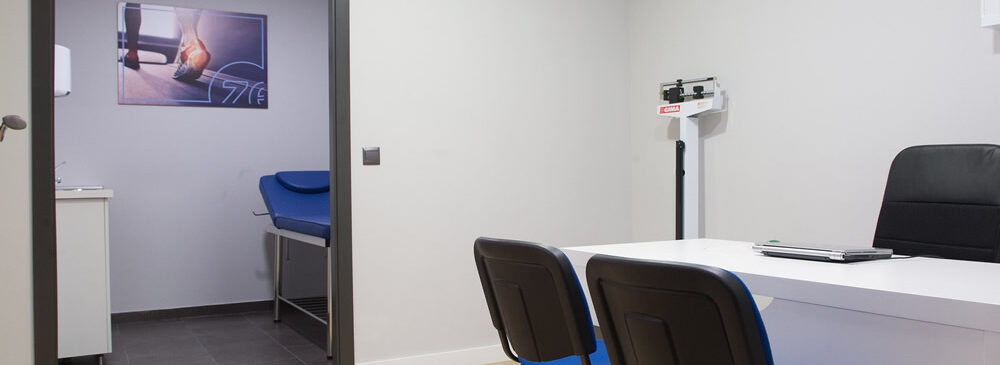Exploring The Benefits of Physiotherapy: How Can It Help You Live Better?
Have you ever felt like your body needs an extra boost to keep up with your active lifestyle? Physiotherapy is a great way to help keep your body healthy and performing at its best.
Physiotherapy is a type of physical therapy that helps to improve movement and reduce pain, while also providing a wide range of other benefits.
Through exercises and techniques, it can help to improve your overall quality of life, from reducing stress and improving your mental health, to helping with the prevention of injury and improving your physical health.
Whether you’re an athlete, a senior looking for pain relief, or just looking for a way to maintain an active lifestyle, physiotherapy can help you achieve your goals. Read on to learn more about the benefits of physiotherapy and how it can help you live better.
What is Physiotherapy?
Physiotherapy is a form of physical therapy that helps patients to improve their physical health and increase their quality of life by focusing on the function of the body.
It is often used in combination with other forms of therapy, such as occupational therapy, speech therapy, and medical interventions, to help patients recover from injury or disease, as well as prevent future issues.
Physiotherapists use a wide variety of techniques to treat their patients’ conditions, including therapeutic exercises and manual techniques.
Most often, physical therapists work with individuals who have a health condition that affects their movement or ability to perform everyday activities.
These individuals may have been diagnosed with a disease or condition that has affected their mobility, such as arthritis, or they may have suffered an injury that has caused them to have decreased functioning in their muscles and joints.
Benefits of Physiotherapy
Physiotherapy can provide benefits for everyone, from kids to seniors, helping to improve your functional health, increase your quality of life, prevent injuries, and more. Below are just a few benefits of physiotherapy that can help you lead a better life.
Better Mood and Mental Health: A wide variety of physiotherapy techniques are known to help improve mood, reduce stress, and improve mental health.
Improved Posture and Core Strength: There are many exercises you can do with a physiotherapist that can help you improve your posture and core strength.
Flexibility and Range of Motion: Through flexibility and stretching exercises, you can improve your flexibility, which can help to prevent injury and improve your posture.
Improved Strength and Resilience: Physiotherapy can also help you to build up strength and resilience in your muscles, joints, and ligaments, which can help to prevent injury and improve your quality of life.
Better Functionality in Your Hands: Hand and upper extremity physiotherapy can help you to improve the functionality in your hands, which can help you improve your quality of life.
Physiotherapy Techniques
- Joint Mobilization: Joint mobilization is an active treatment technique used to improve the range of motion and alleviate pain by increasing muscle function. It is often performed by applying a gentle stretch using a joint glide or other tool to improve your joint function.
- Dry Needling: Dry needling is a manual therapy technique where a thin filament needle is used to penetrate the skin and stimulate the surrounding tissues to increase blood flow and break down scar tissue.
- Muscle Relaxation: When muscles are tense or contracted, relaxation techniques can help to reduce pain and increase your range of motion. Relaxation techniques can be done in a variety of ways, including using music or imagery, progressive relaxation techniques, or even massage.
- Neuro-Rehabilitation: This is a therapy technique that uses various methods to help the nervous system and brain to repair themselves, which can help to improve a patient’s function when they’ve experienced injury, nerve damage, or brain disease.

Types of Physiotherapy
- Rheumatology: Rheumatology focuses specifically on conditions that affect the joints. It can help treat conditions like arthritis and fibromyalgia, as well as work with individuals who have experienced joint injuries.
- Neurology: Neurology focuses on helping patients who have experienced brain or nervous system damage, including those with MS, stroke, and cerebral palsy, as well as those who have had sports-related injuries or other issues that have affected their nervous system.
- Sports Physiotherapy: Sports physiotherapy is a specialized type of physiotherapy that focuses on helping athletes avoid and recover from injuries. It can also help to prevent future injury by helping to identify risk factors and correct common mistakes in form to minimize the risk of injury.
- Gait and Postural Restoration: Postural restoration and gait physiotherapy help patients to overcome neurological issues related to walking, including spasticity and hemiplegic gait.
- Palliative and Respiratory Care: Palliative and respiratory care focus on the treatment of the terminally ill, focusing on reducing pain, and anxiety, and improving quality of life and functional health.
Physiotherapy and Mental Health
Physiotherapy can help to improve mood and reduce stress and anxiety, which can be beneficial in managing mental health conditions, such as anxiety and depression.
Many of the techniques used in physiotherapy can help to reduce the stress response, which can help to improve mood and mental health by helping the body to return to its natural state.
Physiotherapy can also help to improve your mental health by improving your functionality and quality of life, which can help you to maintain your independence, feel less isolated, and reduce feelings of depression.
Physiotherapy is also often recommended as a part of a treatment plan for those who have experienced psychological trauma, such as sexual assault.
Physiotherapy and Injury Prevention
Physiotherapy can help to prevent injury and reduce the risk of re-injury in several ways. First, it can help you to identify your risk factors and correct mistakes in form that can increase your risk of injury.
It can also help you to identify and correct your imbalances, which can increase your risk of injury. Finally, it can help you to improve your strength and flexibility, which can help to prevent injury by improving the strength of your muscles and improving your range of motion.
Physiotherapy and Pain Management
Physiotherapy can help to manage pain in a few different ways. Many of the techniques and exercises can help to break down scar tissue and improve blood flow, which can help to reduce pain.
Other techniques, like joint mobilization, can help to improve joint function, which can also help to reduce pain. Finally, many of the relaxation techniques can help to reduce stress and anxiety, which can also help to improve pain management.
Physiotherapy and Senior Health
Physiotherapy can have many benefits for seniors and help them maintain their independence and quality of life. It can help seniors to improve their flexibility, strength, and range of motion, which can help them to maintain their independence.
It can also help to reduce the risk of falls by helping you to identify your risk factors and correct your form. Finally, it can help to reduce pain and improve mood, which can also help you to maintain your independence and quality of life as you age.
How to Find the Right Physiotherapist
There are a few things to keep in mind when you’re looking for the right physiotherapist. First, you want to make sure they have a specialization in the type of pain you’re experiencing.
Pain management is a very broad field, and there are many different types of specialists. You also want to make sure they use manual therapy techniques, like joint mobilization, dry needling, and massage.
All of these techniques are helpful for pain management, but not all physiotherapists use them. Finally, make sure you feel comfortable with your physiotherapist.
You’re going to be working closely with them, so it’s important that you trust them and feel comfortable opening up to them.
Conclusion
Physiotherapy is a great way to improve your physical health and quality of life. There are a wide range of benefits to physiotherapy, including helping to improve mood and reduce pain and anxiety, improving flexibility, strength, and range of motion, and helping to prevent injury and manage pain.
Physiotherapy is a great option for anyone who is looking to improve their health and their quality of life.


3 Comments
Thank you for explaining to us that physiotherapy can help prevent injuries and reduce the risk of getting them back by helping us identify risk factors and correcting these mistakes to avoid getting injured. My brother is a volleyball athlete, and we’ve been quite worried about his knees these days since he recently just got back from an injury. I’ll have to tell him to see a physiotherapist soon to prevent it from reoccurring. https://www.physiotherapywest.com.au/physiotherapy-benefits-penrith
Ouch! My back has been in so much pain since last weekend after I joined a marathon event. I think I need to find a therapist in an instant to treat me accordingly. By the way, I admire your willingness in sharing with us how beneficial physiotherapy is in alleviating muscle discomfort. https://www.physiotherapywest.com.au/physiotherapy-benefits-penrith
I had no idea that physiotherapy can aid with mood enhancement, stress reduction, and anxiety reduction, all of which are helpful in treating mental health issues including anxiety and depression. My coworker was just telling me about how her stress and anxiety present themselves physically with hives and rashes. I feel like once she reads this article, she’ll definitely try and see if physiotherapy treatment is for her. https://www.shiftptwellness.com/pelvic-floor-physiotherapy-treatments-in-edmonton